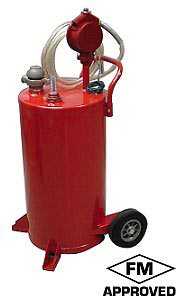In an effort to go green, and to help ween American drivers off of middle east oil, Government regulators have required many areas of the country to supply 10 percent ethanol in fuel for several years now. In the early years, this caused problems in engines because they were not manufactured to withstand this fuel. Gaskets and seals could not hold up to the chemical characteristics of it. The treatment forms acids that corrodes rubber, plastics and some metals. Particularly in older vehicles and in small engines that are typically found on lawn mowers, motor boat engines, chain saws, generators and other home yard maintenance appliances. Manufactures of these engines have adapted their engines over the years to allow them to hold up better. Still, performance and reliability has suffered because of this fuel additive.
More recently, the feds in the EPA decided it was a good idea to increase the percent of Ethanol to gasoline mixture to 15%. Some argue this idea may seem wise to government bureaucrats, however it is not practical in the real world application. The EPA itself acknowledges that the fuel will be harmful to engines. Given this acknowledgement, it perplexes many in the industry that they would proceed with this mandate.
Many industry leaders including organisations such as SEMA and others are sponsoring efforts to halt this harmful requirement. They claim that not only are there economic side effects from this change, but there are negative environmental effects as well. Their hopes are that lawmakers will reconsider this new RFS (“Renewable Fuel Standard”). These critics argue that while these Biofuels may be a good idea in theory the marketplace dictates otherwise. This fuel would ruin millions of automobile and small engines. As it stands right now, the only requirement the EPA has come up with is to mandate labeling at the pumps indicating that this fuel will be harmful to many engines. We will keep you posted.

